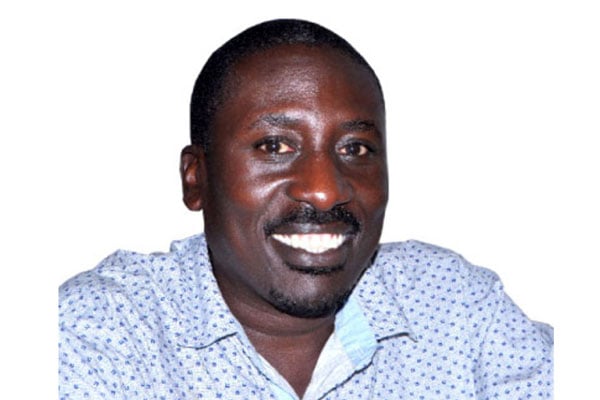
Author: Gawaya Tegulle. PHOTO/NMG
On October 15, 2023, entering Entebbe Town (wait, did I hear it’s now a city?), I ran a red light...right in front of police officers. I had seen them, of course, and had taken all due care when violating the red light. I stopped when the officers flagged me.
I flashed a court order at them and explained that I had to rescue a captive being unlawfully deported and the plane carrying him was already on the tarmac at Entebbe International Airport. They quickly bade me go.
Regis Marie Ntwari, a Burundian, was the subject of a deportation order by the minister of Internal Affairs. I had an order of the High Court, signed by the very nice and professional Justice Boniface Wamala, prohibiting the deportation and requiring the Government of Uganda to enter appearance in court and explain why Mr Ntwari had to be deported.
Getting to the airport, in the company of Mr Ntwari’s wife, Hervine Sindayigaya, and other family members, I served police and immigration officers the court order and demanded that Mr Ntwari’s removal be stayed.
We had served both the Attorney General and Ministry of Internal Affairs the same order two days before all this drama. Both police and immigration took us around in circles, denying and delaying everything, until the plane departed for Burundi, with Mr Ntwari on board. I failed to eat food for a week.
Under both international and national law, a person like Mr Ntwari who has formally applied for asylum cannot be returned to the country he has fled, if he has pleaded that he faces persecution, torture or cruel, inhuman and degrading treatment and his life, liberty and safety are, therefore, at stake. It’s called the principle of non-refoulement and it is a peremptory norm in international law. ‘Peremptory norm’ means it is a compelling law, it’s unconditional, it’s universally accepted and it takes precedence over other laws and cannot be derogated or modified.
To violate it is committing the ultimate, unforgivable sin under international law. Merciful heavens, it is criminal! And besides, with a court order properly served, the government had no business deporting Mr Ntwari - a minister’s order cannot override the order of court.After this debacle, necessity compels me to say two or three things.
Or maybe four, depending on how you count. One, Uganda under the National Resistance Movement (NRM) has degenerated into a mafia state where court orders are disregarded ever so casually. We are killing our nation. Every country we admire in Europe and America got where they are largely because those in power respect the rule of law, make no mistake.
Two, Uganda needs to overhaul its immigration legal and policy framework to meet international standards. Of course, it depends on the lenses you wear and your level of thinking. There are people who, all they know is Uganda as it has been for nearly 40 years. Their frame of reference is that narrow and that limited; so it is even unfair to blame them when they think they are in the greatest country in the world because they think getting a passport is all that immigration is.
But when you begin comparing Uganda with what is being done in civilised places, you begin to appreciate that our immigration system is too narrow, rudimentary and pedestrian. It is backward, corrupt, lopsided and inefficient.
Three, as a matter of policy, immigration and refugee law (with a detailed curriculum covering international, regional and national law) needs to be taught in all law schools as a compulsory module. And, having interacted with them, I respectfully suggest the lawyers in Uganda’s Immigration department should be the first beneficiaries of this new curriculum – a refresher training must be organised for them, in public interest.
Four, at the core of the reform needed is the anomaly that in Uganda, deportation is a political decision in the hands of the minister of Internal Affairs. This is backward, especially at a time when we have the highest number of refugees in Africa.
Cases involving deportation, removal, asylum, and other immigration-related matters are complex and require adducing of evidence and respect for and protection of human rights, especially individuals' due process rights, climaxing in just, impartial decisions. This requires highly trained judicial officers in separate, specialised immigration courts, not politicians.
Don’t want to miss out on any story? For updates on all Monitor stories, follow this link on WhatsApp channel: https://bit.ly/4aYJlp3







